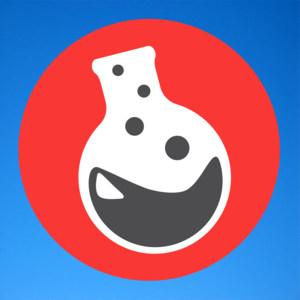12594759
AQA (9-1) Topic 7
Description
No tags specified
Quiz by https:// revisechemistry.uk, updated more than 1 year ago
More
Less

|
Created by https:// revisechemistry.uk
almost 8 years ago
|
|
Resource summary
Question 1
Question
Identify the missing reactants/products for complete and incomplete combustion:
[blank_start]Complete[blank_end] combustion:
fuel + oxygen → carbon dioxide + [blank_start]water[blank_end]
[blank_start]Incomplete[blank_end] combustion:
fuel + [blank_start]oxygen[blank_end] → [blank_start]carbon monoxide[blank_end] and water
Answer
-
water
-
hydrogen
-
oxygen
-
carbon
-
air
-
Complete
-
Incomplete
-
carbon monoxide
-
carbon dioxide
Question 2
Question
Which of the following is not a hydrocarbon?
Answer
-
Ethane
-
Propene
-
Methanol
-
Butane
Question 3
Question
[blank_start]Fractional distillation[blank_end] is the process of separating crude oil into its different compounds. Crude oil is a [blank_start]mixture[blank_end] of [blank_start]compounds[blank_end], and is pretty useless by itself.
1. Crude oil is [blank_start]heated[blank_end] as it enters the fractionating column.
2. The crude oil is evaporated/vaporised, and begins to [blank_start]rise[blank_end].
3. The top of the column is [blank_start]cooler[blank_end] than the bottom.
4. As the gases rise they begin to condense as they reach their [blank_start]boiling[blank_end] point.
5. The different molecules will condense into [blank_start]fractions[blank_end] of molecules with similar boiling points.
6. The [blank_start]longer[blank_end] the hydrocarbon chain, the higher the boiling point - so will collect near the bottom of the column.
Answer
-
Fractional distillation
-
Distillation
-
Crystallisation
-
mixture
-
compound
-
selection
-
compounds
-
mixtures
-
heated
-
cooled
-
rise
-
sink
-
cooler
-
hotter
-
boiling
-
melting
-
fractions
-
halves
-
quarters
-
longer
-
shorter
Question 4
Question
Four unknown alkanes had their viscosities compared, and they are listed below. Pick the chemical that would be described as the "thickest" liquid, or the one that flows most slowly. (The higher the number, the greater the viscosity)
Answer
-
1
-
1.2
-
1.4
-
1.6
Question 5
Question
A hydrocarbon is a molecule that contains only hydrogen and carbon atoms. Alkanes and alkenes are two homologous series of hydrocarbons. Select below which compounds are ALKANES.
Answer
-
A compound with 2 carbon atoms, and 6 hydrogen atoms.
-
A compound with 6 carbon atoms, and 12 hydrogen atoms.
-
A compound with 1 carbon atom, and 4 hydrogen atoms.
-
A compound with 3 carbon atoms, and 8 hydrogen atoms.
-
A compound with 4 carbon atoms, and 8 hydrogen atoms.
-
A compound with 10 carbon atoms, and 22 hydrogen atoms.
Question 6
Question
The test for alkenes is to add bromine water to an alkene, and it will turn from an orange colour to colourless.
Answer
- True
- False
Question 7
Question
Which of the following is not something chemicals in a homologous series have in common:
Answer
-
they have the same general formula
-
differ by one oxygen atom in molecular formulae from neighbouring compounds
-
show a gradual variation in physical properties
-
have similar chemical properties
Question 8
Question
Because alkanes only contain [blank_start]single[blank_end] bonds between atoms, we describe them as saturated compounds.
Answer
-
single
Question 9
Question
Cracking involves the breaking down of larger, [blank_start]saturated[blank_end] hydrocarbon molecules ([blank_start]alkanes[blank_end]) into smaller, more useful ones: an shorter saturated [blank_start]alkane[blank_end], and [blank_start]an unsaturated[blank_end] alkene.
Answer
-
saturated
-
unsaturated
-
alkanes
-
alkenes
-
alkane
-
alkene
-
an unsaturated
-
a saturated
Question 10
Question
The process of cracking is a thermal decomposition.
Answer
- True
- False
Question 11
Question
Select all the ways below that hydrocarbons can be cracked.
Answer
-
Large chain hydrocarbons are heated and passed over a hot catalyst
-
Large chain hydrocarbons are heated and are reacted with steam.
-
Large chain hydrocarbons are heated and cooled down extremely quickly
-
Large chain hydrocarbons are reacted with hydrogen gas with a catalyst present
Question 12
Question
[blank_start]gas[blank_end] is used in domestic heating and cooking
[blank_start]bitumen[blank_end] is used to surface roads and roofs
[blank_start]kerosene[blank_end] is used as fuel for aircraft
[blank_start]petrol (gasoline)[blank_end] is used as fuel for cars
[blank_start]fuel oil[blank_end] is used as fuel for large ships and power stations
[blank_start]diesel oil[blank_end] is used as fuel for some cars and trains
Answer
-
gas
-
bitumen
-
kerosene
-
petrol (gasoline)
-
fuel oil
-
diesel oil
Want to create your own Quizzes for free with GoConqr? Learn more.
